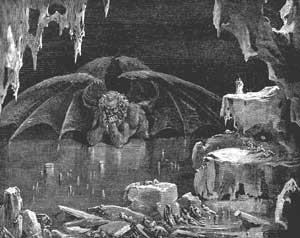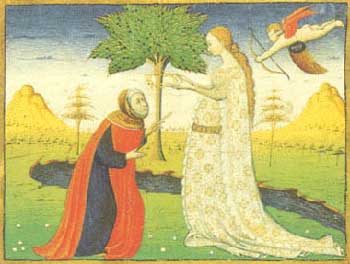
Just when you thought Dante was the stuff of the fourteenth century, The New York Times publishes an article to remind you of just how wrong you are. Ralph Blumenthal uses Dante's formulation of Hell to explain (in some ways) why Bernie Madoff's recent sentence was so harsh--one he suggests is "more than some killers." The article also quotes Robert Pinsky, who offers his perspective on why fraud lands you in the ninth, frozen level of Hell--three-headed Satan and all.


